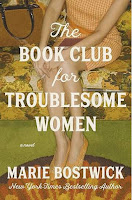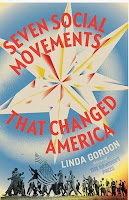
It seems fitting to honor the 70th anniversary of the Supreme Court’s decision Brown v Board of Education (May 17, 1954) with a review of THEY CAME FOR THE SCHOOLS by Mike Hixenbaugh in which he writes about
“One Town's Fight Over Race and Identity, and the New War for America's
Classrooms.” Hixenbaugh’s credentials are impressive: senior investigative
reporter for NBC News, named a Pulitzer Prize finalist, and won a Peabody Award
for his reporting on the battle over race, gender, and sexuality in American
classrooms. His debut is extremely well-written, if disturbing, as he skillfully
details a history of school composition and curriculum restrictions in the Carroll Independent School District in Southlake, Texas, a Dallas
suburb. By requiring large lots for housing, Southlake had essentially screened
for wealth and race so that “three decades after Brown, America’s
schools had effectively resegregated, perhaps not explicitly based on race, but
according to wealth, geography, and social status.” Moving forward in time, Hixenbaugh
recounts how a 2018 viral video with a racial slur prompted district officials
to take action to establish a diversity program and the resulting backlash. Much
of this has been presented in Hixenbaugh’s podcast: Southlake, critiqued here
in Texas Monthly. His
book also describes situations in Virginia, Florida and other states; plus, he chronicles
the impact of national politics (and neighborhood PACs) on local school board
elections and actions. There is a section on book bans: “without fail, parents
leading this new phase of school board activism reported that they were merely
fighting to shield their children from graphic sexual content that violated
their family’s values. But many parents and activists were conflating
references to gender identity and sexual orientation with sex and pornography.”
Hixenbaugh is unflinching in presenting tough situations and the blow to
quality teaching and to student well-being. His research is evident (roughly
fifteen percent of the text is devoted to notes and bibliographic references)
and this book deserves a wide readership.
Other commentary on THEY
CAME FOR THE SCHOOLS: The
Washington Post review says, “This
razor-sharp book is the masterful culmination of years of reportage.” And Publishers
Weekly gave it a starred review, remarking, “an extraordinarily detailed
analysis of current conservative thought and political activity.” But the most succinct
is from Booklist, “This is a frightening but all too real piece of
reporting, and belongs in every library.”




















